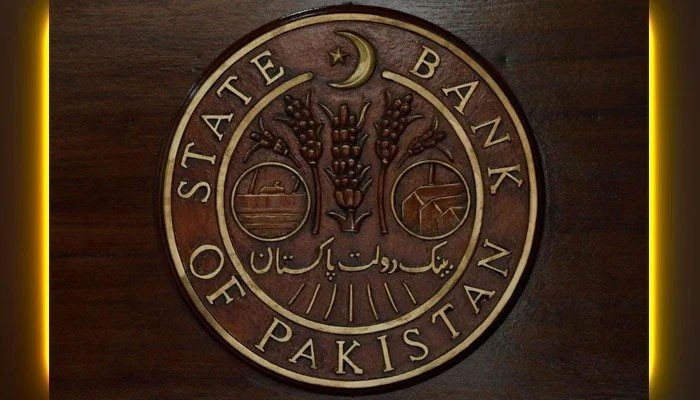Foreign investors pull out $471.7mln from Pakistan’s debt market
KARACHI: Foreign investors pulled out $471.7 million from Pakistan’s debt market in five months as lower interest rates and Covid resurgence weighed down their investment appetite, the central bank’s data showed.
Analysts said the continued hot money outflows from the local fixed income market indicates that the low-yielding government debt has become less attractive for foreigners with the State Bank of Pakistan (SBP) having slashed policy rates by 625 basis points to 7 percent since mid-March.
“The withdrawal could be because rates are close to all-time lows and are not lucrative enough for investors,” said Saad Hashemy, executive director at BMA Capital. “Increase in rates will result in losses and maturing investment is not being rolled over as foreign investment in the local bond market started late last year.”
However, the government securities such as market treasury bills and Pakistan investment bonds received a combined total inflow of $205.6 million during July 1 to November 25, according to the SBP.
The SBP’s data showed that foreigners became net sellers of $266.1 million worth of the treasury bills and investment bonds during the period under review.
Analysts said the central bank seems reluctant to tighten monetary policy till the first quarter of next year to help revive lockdown-battered economic growth. They expect a gradual 1 to 2 percent rise in interest rates till June.
They said average 7 percent yields on the treasury bills and 8-10 percent on the investment bonds are still attractive for the foreign investors when compared with negative and near-zero interest rates in the United States and Europe.
The stability in the exchange rate, after appreciation in rupee value versus the US dollar, has not propelled the foreign investors to buy Pakistan’s debt.
Foreigners purchased $90.9 million worth of local currency bonds between July 1 and November 25, while they divested $36 million from the short-term instruments in the same period, according to the SBP’s figures.
“We saw outflows only from the treasury bills in November, but foreigners invested both in treasury-bills and the investment bonds during the month,” said another analyst.
“This trend shows foreign investors can step up buying of the rupee-denominated bonds and such inflows to the country should resume once the interest rates are started going up. It also depends on a faster economic recovery in the world and in the country following the positive news on the vaccine progress,”
The SBP said activities in the local currency debt securities largely drove the portfolio investment, with net portfolio inflows surging to $2.1 billion during July-February, and then reversing to a net outflow of $2.7 billion in the March-June period.
“It is important to highlight that the reversal in capital flows in this latter period was not unique to Pakistan. The outbreak of the Covid-19 pandemic, specifically in advanced economies, led to a global flight of capital from emerging and developing economies,” it said in a latest report.
Although the country is not able to attract foreign exchange inflows into the local currency debt market, the central bank’s foreign exchange reserves reached $13.4 billion as of November 20, compared with $12.1 billion as of June-end.
The increase in the reserves is supported by surplus in the current account, higher remittances, and increased inflows from the international financial institutions.
-
 Winter Olympics 2026: Top Contenders Poised To Win Gold In Women’s Figure Skating
Winter Olympics 2026: Top Contenders Poised To Win Gold In Women’s Figure Skating -
 Inside The Moment King Charles Put Prince William In His Place For Speaking Against Andrew
Inside The Moment King Charles Put Prince William In His Place For Speaking Against Andrew -
 Will AI Take Your Job After Graduation? Here’s What Research Really Says
Will AI Take Your Job After Graduation? Here’s What Research Really Says -
 California Cop Accused Of Using Bogus 911 Calls To Reach Ex-partner
California Cop Accused Of Using Bogus 911 Calls To Reach Ex-partner -
 AI Film School Trains Hollywood's Next Generation Of Filmmakers
AI Film School Trains Hollywood's Next Generation Of Filmmakers -
 Royal Expert Claims Meghan Markle Is 'running Out Of Friends'
Royal Expert Claims Meghan Markle Is 'running Out Of Friends' -
 Bruno Mars' Valentine's Day Surprise Labelled 'classy Promo Move'
Bruno Mars' Valentine's Day Surprise Labelled 'classy Promo Move' -
 Ed Sheeran Shares His Trick Of Turning Bad Memories Into Happy Ones
Ed Sheeran Shares His Trick Of Turning Bad Memories Into Happy Ones -
 Teyana Taylor Reflects On Her Friendship With Julia Roberts
Teyana Taylor Reflects On Her Friendship With Julia Roberts -
 Bright Green Comet C/2024 E1 Nears Closest Approach Before Leaving Solar System
Bright Green Comet C/2024 E1 Nears Closest Approach Before Leaving Solar System -
 Meghan Markle Warns Prince Harry As Royal Family Lands In 'biggest Crises' Since Death Of Princess Diana
Meghan Markle Warns Prince Harry As Royal Family Lands In 'biggest Crises' Since Death Of Princess Diana -
 Elon Musk Weighs Parenthood Against AI Boom, Sparking Public Debate
Elon Musk Weighs Parenthood Against AI Boom, Sparking Public Debate -
 'Elderly' Nanny Arrested By ICE Outside Employer's Home, Freed After Judge's Order
'Elderly' Nanny Arrested By ICE Outside Employer's Home, Freed After Judge's Order -
 Keke Palmer On Managing Growing Career With 2-year-old Son: 'It's A Lot'
Keke Palmer On Managing Growing Career With 2-year-old Son: 'It's A Lot' -
 Key Details From Germany's Multimillion-euro Heist Revealed
Key Details From Germany's Multimillion-euro Heist Revealed -
 David E. Kelley Breaks Vow To Cast Wife Michelle Pfeiffer In 'Margo's Got Money Troubles'
David E. Kelley Breaks Vow To Cast Wife Michelle Pfeiffer In 'Margo's Got Money Troubles'




